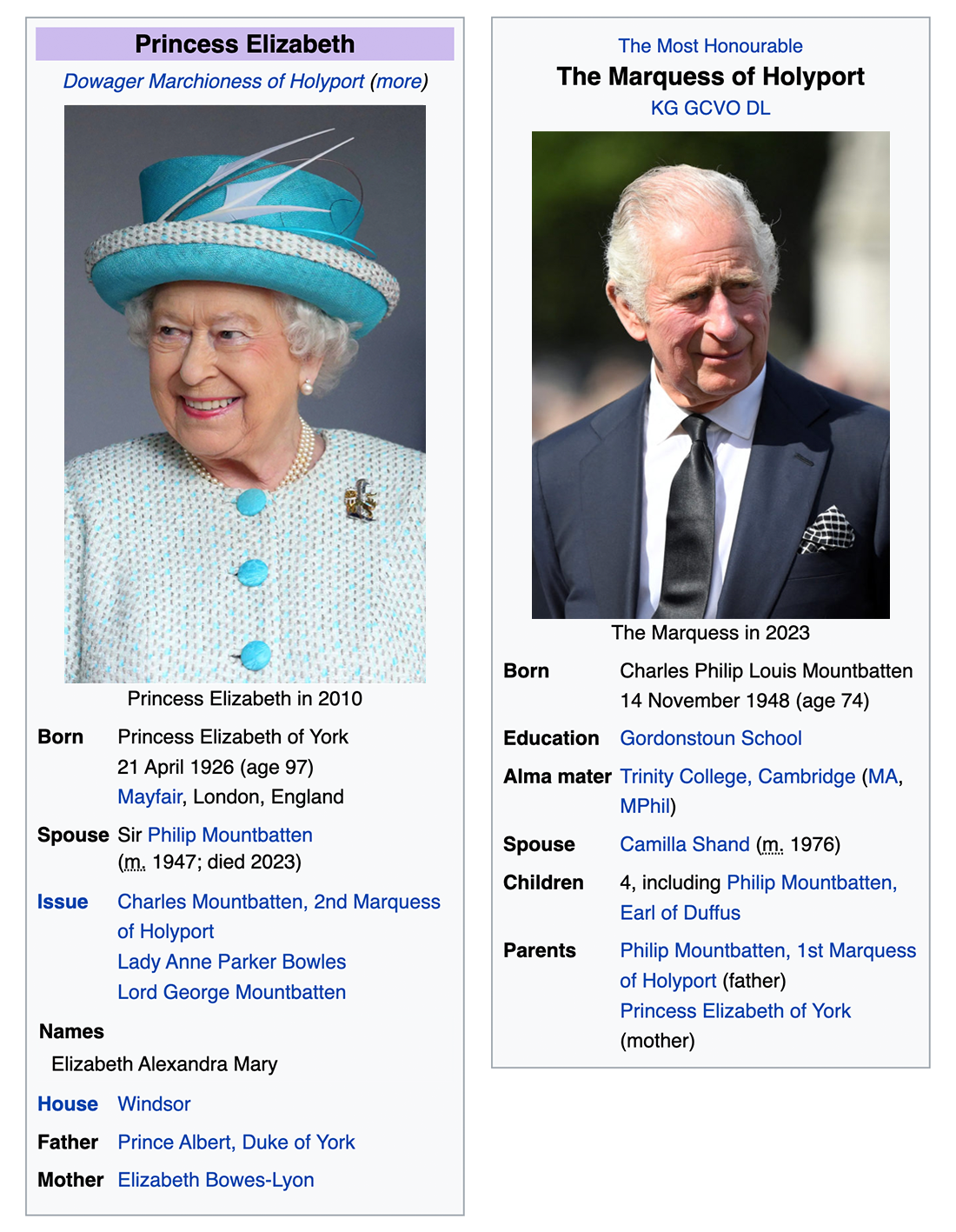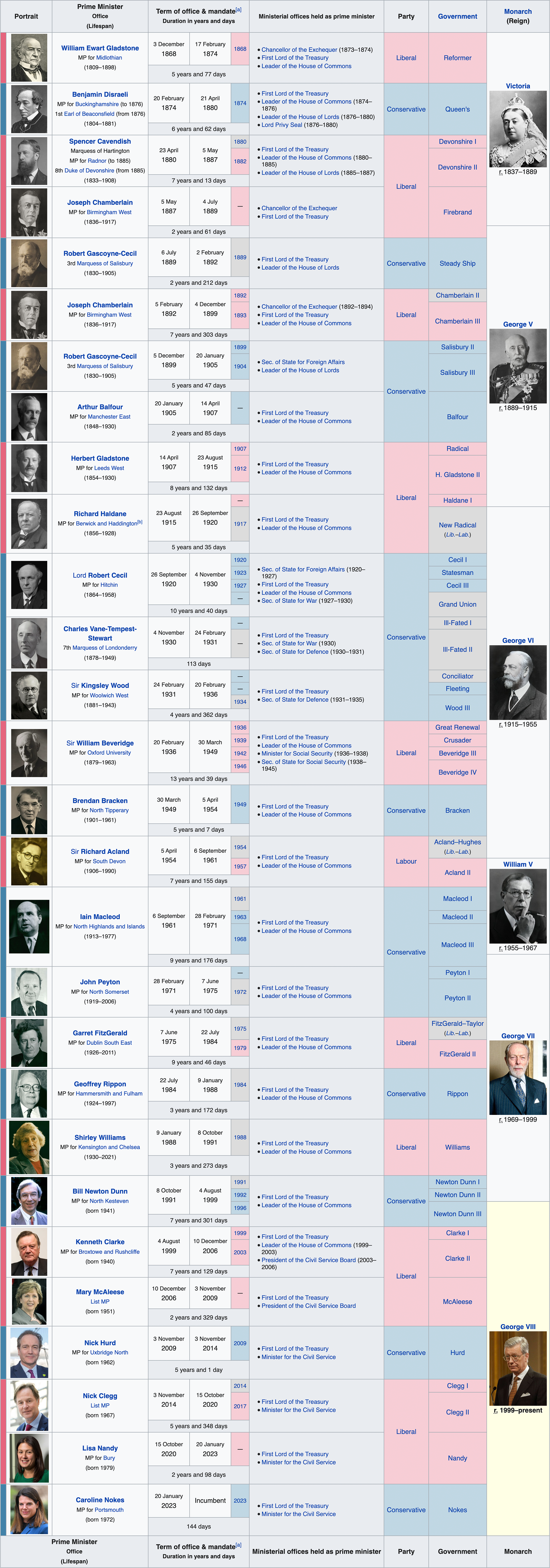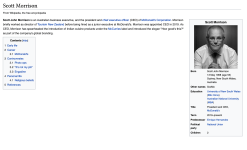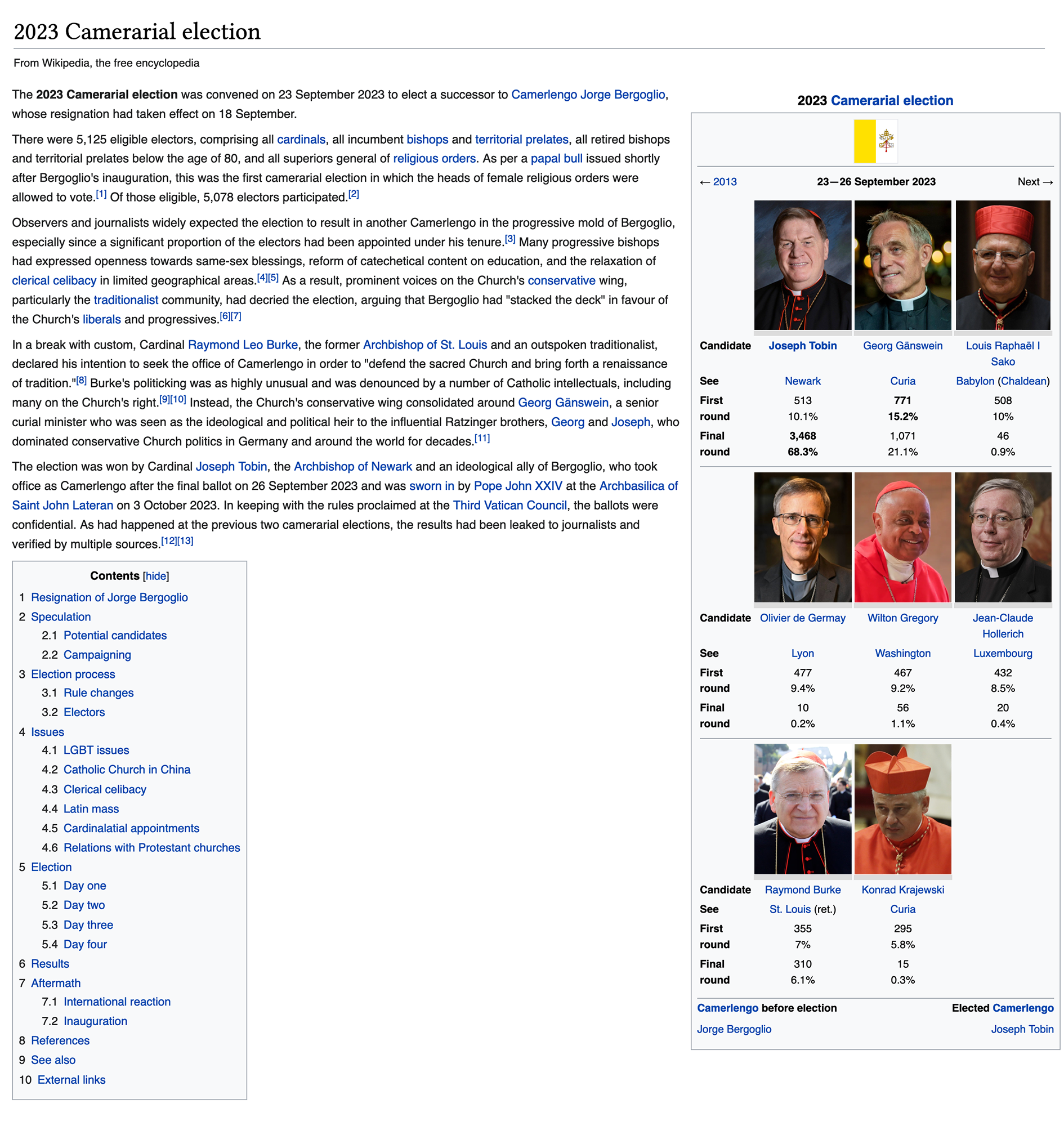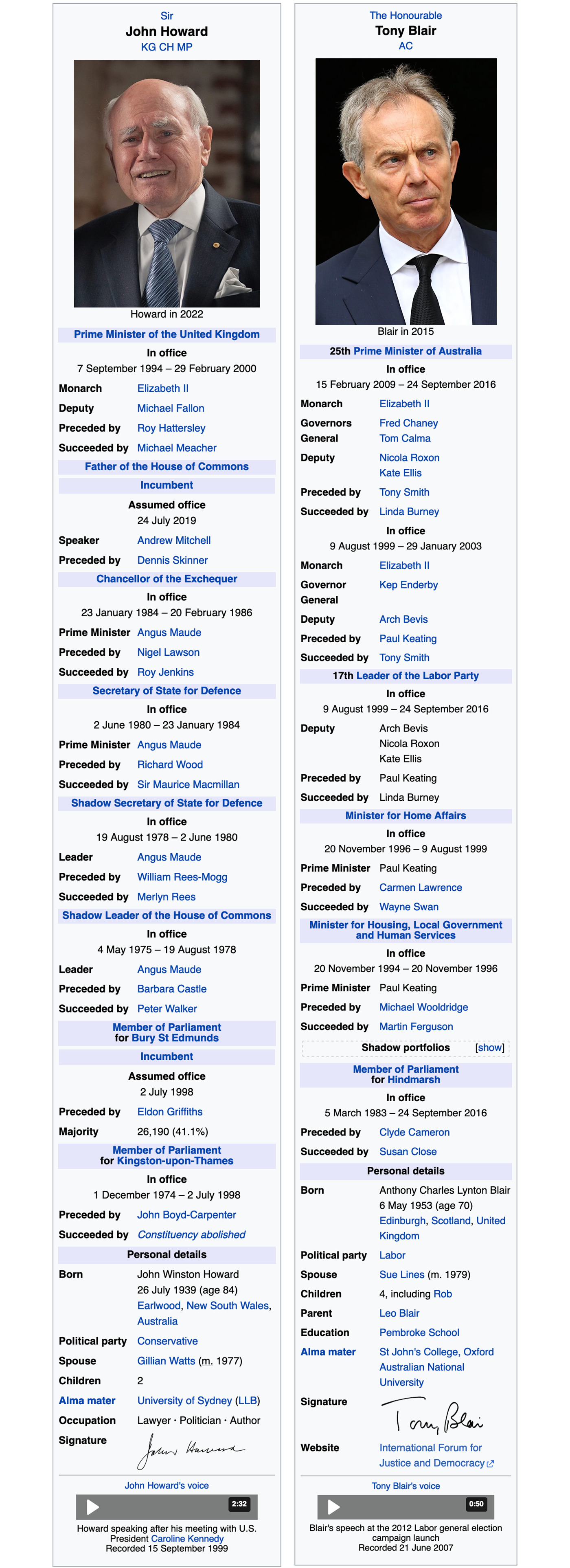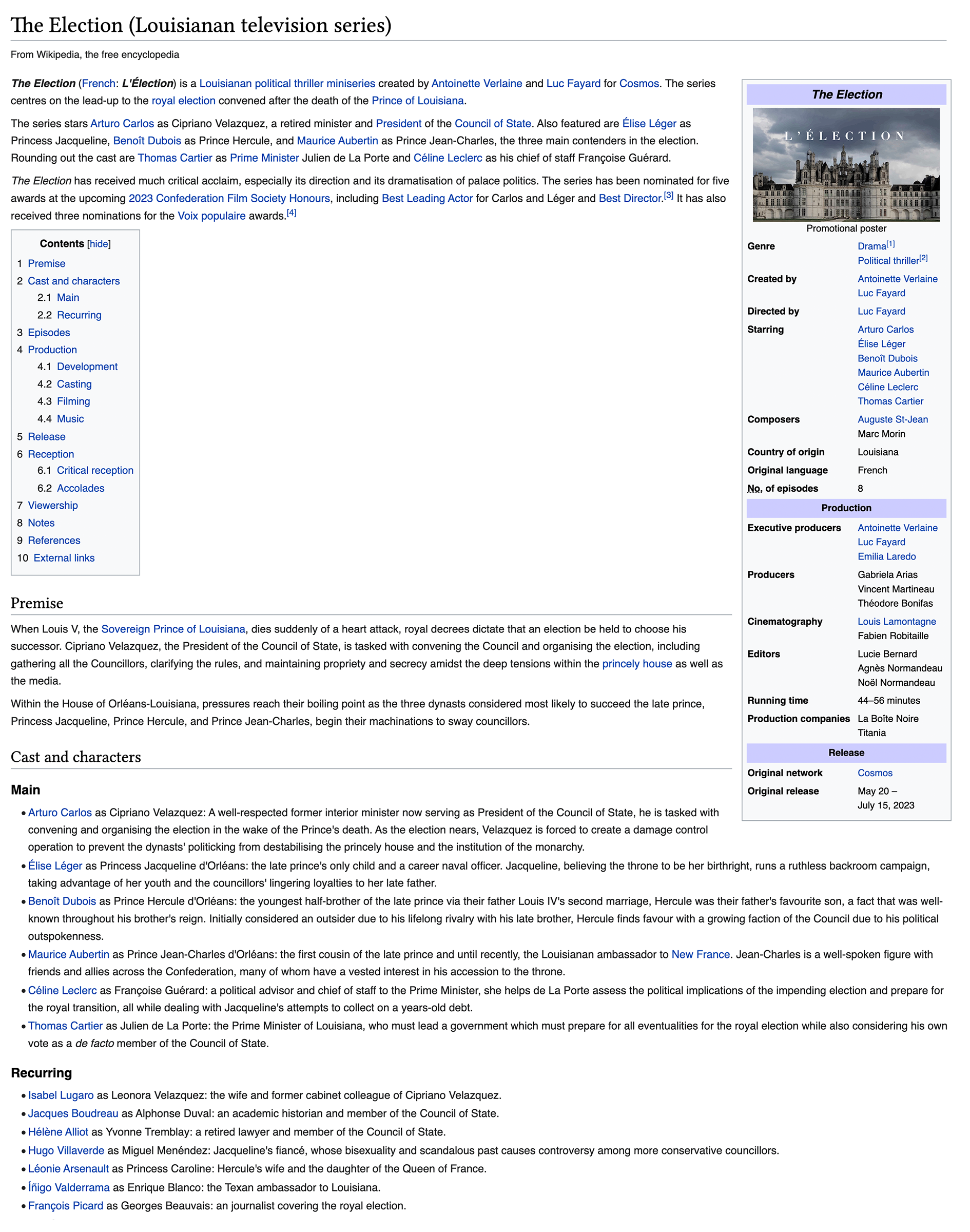-
Hi Guest!
The costs of running this forum are covered by Sea Lion Press. If you'd like to help support the company and the forum, visit patreon.com/sealionpress
You are using an out of date browser. It may not display this or other websites correctly.
You should upgrade or use an alternative browser.
You should upgrade or use an alternative browser.
aaa's bad memory palace
- Thread starter aaa
- Start date
Gladwyn Merrick
Member
What’s up with Queen Victoria having a different son? And also how did you make their face claims?Monarchs of the United Kingdom
1837–1889: Victoria [Alexandrina Victoria] (Hanover)
1889–1915: George V [Albert William George] (Saxe-Coburg-Gotha) (son of)
1915–1955: George VI [George Frederick Arthur David] (Saxe-Coburg-Gotha) (son of)
1955–1967: William V [William Michael James] (Saxe-Coburg-Gotha) (son of)
1967–1999: George VII [George Stephen Victor] (Saxe-Coburg-Gotha) (nephew of)
1999–0000: George VIII [Henry George Nicholas Alexander] (Saxe-Coburg-Gotha) (son of)
heir apparent: Frederick, Prince of Wales [Frederick Henry Alfred Owen] (son of)
For the hell of it, mostly. Face claims are all from Faceapp!What’s up with Queen Victoria having a different son? And also how did you make their face claims?
List of Leaders of the New Democratic Party
1963–1976: Tommy Douglas
1976–1980: David Lewis
1980–1983: Mel Watkins
1983–1992: Ed Broadbent
1992–1994: Jack Layton
1994–2007: Tom Mulcair
2007–2010: Nycole Turmel
2010–2010: Gary Doer (acting)
2010–2015: Peter Julian
2015–2015: Gary Doer (acting)
2015–2020: Svend Robinson
2020–0000: David Eby
List of Leaders of the Liberal Party
1956–1967: Jean Marchand
1967–1976: Paul Hellyer
1976–1976: Jean Marchand (acting)
1976–1988: John Turner
1988–1999: John McCallum
1999–2006: Gerard Kennedy
2006–2007: Pierre Pettigrew (acting from Jan-Mar 2006)
2007–2007: David Dodge (acting)
2007–2015: Justin Trudeau
2015–2017: Robert Ghiz
2017–2019: David Dodge
2019–2019: Mélanie Joly
2019–0000: Dominic LeBlanc (acting from 2019-Aug 2020)
List of Leaders of the Progressive Conservative Party
1963–1965: George Hees
1965–1975: Robert Stanfield
1975–1990: Grace McCarthy
1990–1997: Michael Wilson
1997–2001: Bernard Lord
2001–2003: Blaine Higgs (lost vote of confidence)
2003–2005: Vic Toews
2005–2016: John Tory
2016–2019: Jim Prentice
2019–2022: Doug Ford
2022–2022: Danielle Smith
2022–0000: Mark Mulroney
1963–1976: Tommy Douglas
1976–1980: David Lewis
1980–1983: Mel Watkins
1983–1992: Ed Broadbent
1992–1994: Jack Layton
1994–2007: Tom Mulcair
2007–2010: Nycole Turmel
2010–2010: Gary Doer (acting)
2010–2015: Peter Julian
2015–2015: Gary Doer (acting)
2015–2020: Svend Robinson
2020–0000: David Eby
List of Leaders of the Liberal Party
1956–1967: Jean Marchand
1967–1976: Paul Hellyer
1976–1976: Jean Marchand (acting)
1976–1988: John Turner
1988–1999: John McCallum
1999–2006: Gerard Kennedy
2006–2007: Pierre Pettigrew (acting from Jan-Mar 2006)
2007–2007: David Dodge (acting)
2007–2015: Justin Trudeau
2015–2017: Robert Ghiz
2017–2019: David Dodge
2019–2019: Mélanie Joly
2019–0000: Dominic LeBlanc (acting from 2019-Aug 2020)
List of Leaders of the Progressive Conservative Party
1963–1965: George Hees
1965–1975: Robert Stanfield
1975–1990: Grace McCarthy
1990–1997: Michael Wilson
1997–2001: Bernard Lord
2001–2003: Blaine Higgs (lost vote of confidence)
2003–2005: Vic Toews
2005–2016: John Tory
2016–2019: Jim Prentice
2019–2022: Doug Ford
2022–2022: Danielle Smith
2022–0000: Mark Mulroney
List of Premiers of the Province of New Jersey
1975–1980: Michael Matthews (Liberal)
1977 (min.) def. Raymond Bateman (Progressive Conservative)
1980–1988: Thomas Kean (Progressive Conservative)
1980 (maj.) def. Ronald Rice (NJ Liberals), collective leadership (Independent Liberals)
1982 (maj.) def. Helen Meyner (Liberal)
1985 (maj.) def. Richard Leone (Liberal)
1988–1992: Richard Leone (Liberal)
1988 (min.) def. Thomas Kean (Progressive Conservative)
1989 (maj.) def. Thomas Kean (Progressive Conservative)
1992–1998: Thomas Kean (Progressive Conservative)
1992 (maj.) def. Richard Leone (Liberal)
1995 (maj.) def. Richard Leone (Liberal)
1998–2004: Richard Leone (Liberal)
1998 (maj.) def. Thomas Kean (Progressive Conservative)
2001 (maj.) def. Bob Franks (Progressive Conservative)
2004–2006: Bob Menendez (Liberal)
2004 (min.) def. Diane Allen (Progressive Conservative), Bonnie Watson Coleman (Reform)
2006–2008: Scott Garrett (Progressive Conservative)
2006 (min.) def. Bob Menendez (Liberal), Bonnie Watson Coleman (Reform), Rush D. Holt Jr. (New Democratic)
2008–2023: Stephen Sweeney (Liberal)
2008 (maj.) def. Scott Garrett (Progressive Conservative), Rush D. Holt Jr. (Reform-NDP)
2011 (maj.) def. John Crowley (Progressive Conservative)
2014 (min.) def. John Crowley (Progressive Conservative), Jim Keady (Reform-NDP)
2017 (maj.) def. Jeff Chiesa (Progressive Conservative), John Wisniewski (Reform-NDP)
2020 (maj.) def. Hal Wirths (Progressive Conservative), John Wisniewski (Reform-NDP)
2023–0000: Aura Dunn (Progressive Conservative)
2023 (min.) def. Stephen Sweeney (Liberal), Arati Kreibich (Reform-NDP)
TOMORROW ON THE BALLOT BOX PODCAST: we take a look into the fascinating tale of New Jersey's provincial politics.
Perhaps more than anywhere else in Canada, New Jersey is home to some of the most blatant political machines, shoring up support for bosses and their chosen protégés and ensuring they turn up in droves come election time. Once a proud tradition on both sides of the aisle, political machinery today has concentrated itself among Liberal factions in certain areas as the province as a whole has shifted almost solidly away from its swingier days.
We'll dive straight in to the ill-fated premiership of Michael Matthews, whose government would come crashing down in 1980 after journalists broke the story of the premier's dealings with businessmen connected to organised crime. After the scandal quite literally led to half the cabinet finding themselves implicated and the other half resigning in protests, the federal Liberals severed ties and left the state party to rebuild. We'll talk about Thomas Kean's rapid rise to power, his landslide victory, and how Helen Meyner led the Liberals out of the wilderness.
We'll have a look at the 1980s and 90s, a decade clearly defined by the rival premierships of Tom Kean and Richard Leone. We'll look at the anti-corruption movement and the formation of the Reform Party as cases snowballed in the early 2000s. We'll examine the short-lived premiership of Scott Garrett, and consider whether the PCs should've gone with the "safe choice"—Kip Bateman—in the hotly-contested 2005 leadership election. We'll have a look at the record-breaking fifteen-year premiership of Steve Sweeney, including how he managed to hang on to power for so long and why the Liberals finally lost in a squeaker in 2023. Finally, we'll go over the recently-concluded Liberal leadership race and see whether Mikie Sherrill can deliver on the radical reform that her campaign promised.
1975–1980: Michael Matthews (Liberal)
1977 (min.) def. Raymond Bateman (Progressive Conservative)
1980–1988: Thomas Kean (Progressive Conservative)
1980 (maj.) def. Ronald Rice (NJ Liberals), collective leadership (Independent Liberals)
1982 (maj.) def. Helen Meyner (Liberal)
1985 (maj.) def. Richard Leone (Liberal)
1988–1992: Richard Leone (Liberal)
1988 (min.) def. Thomas Kean (Progressive Conservative)
1989 (maj.) def. Thomas Kean (Progressive Conservative)
1992–1998: Thomas Kean (Progressive Conservative)
1992 (maj.) def. Richard Leone (Liberal)
1995 (maj.) def. Richard Leone (Liberal)
1998–2004: Richard Leone (Liberal)
1998 (maj.) def. Thomas Kean (Progressive Conservative)
2001 (maj.) def. Bob Franks (Progressive Conservative)
2004–2006: Bob Menendez (Liberal)
2004 (min.) def. Diane Allen (Progressive Conservative), Bonnie Watson Coleman (Reform)
2006–2008: Scott Garrett (Progressive Conservative)
2006 (min.) def. Bob Menendez (Liberal), Bonnie Watson Coleman (Reform), Rush D. Holt Jr. (New Democratic)
2008–2023: Stephen Sweeney (Liberal)
2008 (maj.) def. Scott Garrett (Progressive Conservative), Rush D. Holt Jr. (Reform-NDP)
2011 (maj.) def. John Crowley (Progressive Conservative)
2014 (min.) def. John Crowley (Progressive Conservative), Jim Keady (Reform-NDP)
2017 (maj.) def. Jeff Chiesa (Progressive Conservative), John Wisniewski (Reform-NDP)
2020 (maj.) def. Hal Wirths (Progressive Conservative), John Wisniewski (Reform-NDP)
2023–0000: Aura Dunn (Progressive Conservative)
2023 (min.) def. Stephen Sweeney (Liberal), Arati Kreibich (Reform-NDP)
TOMORROW ON THE BALLOT BOX PODCAST: we take a look into the fascinating tale of New Jersey's provincial politics.
Perhaps more than anywhere else in Canada, New Jersey is home to some of the most blatant political machines, shoring up support for bosses and their chosen protégés and ensuring they turn up in droves come election time. Once a proud tradition on both sides of the aisle, political machinery today has concentrated itself among Liberal factions in certain areas as the province as a whole has shifted almost solidly away from its swingier days.
We'll dive straight in to the ill-fated premiership of Michael Matthews, whose government would come crashing down in 1980 after journalists broke the story of the premier's dealings with businessmen connected to organised crime. After the scandal quite literally led to half the cabinet finding themselves implicated and the other half resigning in protests, the federal Liberals severed ties and left the state party to rebuild. We'll talk about Thomas Kean's rapid rise to power, his landslide victory, and how Helen Meyner led the Liberals out of the wilderness.
We'll have a look at the 1980s and 90s, a decade clearly defined by the rival premierships of Tom Kean and Richard Leone. We'll look at the anti-corruption movement and the formation of the Reform Party as cases snowballed in the early 2000s. We'll examine the short-lived premiership of Scott Garrett, and consider whether the PCs should've gone with the "safe choice"—Kip Bateman—in the hotly-contested 2005 leadership election. We'll have a look at the record-breaking fifteen-year premiership of Steve Sweeney, including how he managed to hang on to power for so long and why the Liberals finally lost in a squeaker in 2023. Finally, we'll go over the recently-concluded Liberal leadership race and see whether Mikie Sherrill can deliver on the radical reform that her campaign promised.
List of Premiers of Quebec
2003–2011: Jean Charest (Liberal)
2003 (maj.) def. Bernard Landry (Parti Québécois), Mario Dumont (Action démocratique)
2007 (min.) def. Mario Dumont (Action démocratique), André Boisclair (Parti Québécois), Thomas Mulcair (Nouveau Parti démocratique)
2008 (min.) def. Pauline Marois (Parti Québécois), Thomas Mulcair (Nouveau Parti démocratique), Gérard Deltell (Action démocratique), Françoise David & Amir Khadir (Québec solidaire)
2011–2013: Pauline Marois (Parti Québécois)
2011 (min.) def. Jean Charest (Liberal), Gérard Deltell (Action démocratique), Denis Blanchette (Nouveau Parti démocratique), Françoise David & Amir Khadir (Québec solidaire)
2013–2017: Denis Coderre (Liberal)
2013 (min.) def. François Legault (Coalition Avenir Québec), Denis Blanchette (Nouveau Parti démocratique), Pauline Marois (Parti Québécois), Françoise David & Andrés Fontecilla (Québec solidaire)
2017–2023: François Legault (Coalition Avenir Québec)
2017 (maj.) def. Denis Coderre (Liberal), Paulina Ayala (Nouveau Parti démocratique), Bernard Drainville (Parti Québécois), Sol Zanetti & Manon Massé (Québec solidaire)
2021 (min.) def. Pierre-Luc Dusseault (Nouveau Parti démocratique), André Pratte (Liberal), Pierre Karl Péladeau (Parti Québécois), Sol Zanetti & Manon Massé (Québec solidaire)
2023–2029: Pierre-Luc Dusseault (Nouveau Parti démocratique)
2023 (min.) def. François Legault (Coalition Avenir Québec), Alain Rayes (Liberal), Pascal Bérubé (Parti Québécois), Sol Zanetti & Catherine Dorion (Québec solidaire)
2025 (maj.) def. Sonia LeBel (Coalition Avenir Québec), Antoine Dionne Charest (Liberal), Pascal Bérubé (Parti Québécois), Gabriel Nadeau-Dubois & Catherine Dorion (Québec solidaire)
2029–0000: Maïtée Labrecque-Saganash (Nouveau Parti démocratique)
2003–2011: Jean Charest (Liberal)
2003 (maj.) def. Bernard Landry (Parti Québécois), Mario Dumont (Action démocratique)
2007 (min.) def. Mario Dumont (Action démocratique), André Boisclair (Parti Québécois), Thomas Mulcair (Nouveau Parti démocratique)
2008 (min.) def. Pauline Marois (Parti Québécois), Thomas Mulcair (Nouveau Parti démocratique), Gérard Deltell (Action démocratique), Françoise David & Amir Khadir (Québec solidaire)
2011–2013: Pauline Marois (Parti Québécois)
2011 (min.) def. Jean Charest (Liberal), Gérard Deltell (Action démocratique), Denis Blanchette (Nouveau Parti démocratique), Françoise David & Amir Khadir (Québec solidaire)
2013–2017: Denis Coderre (Liberal)
2013 (min.) def. François Legault (Coalition Avenir Québec), Denis Blanchette (Nouveau Parti démocratique), Pauline Marois (Parti Québécois), Françoise David & Andrés Fontecilla (Québec solidaire)
2017–2023: François Legault (Coalition Avenir Québec)
2017 (maj.) def. Denis Coderre (Liberal), Paulina Ayala (Nouveau Parti démocratique), Bernard Drainville (Parti Québécois), Sol Zanetti & Manon Massé (Québec solidaire)
2021 (min.) def. Pierre-Luc Dusseault (Nouveau Parti démocratique), André Pratte (Liberal), Pierre Karl Péladeau (Parti Québécois), Sol Zanetti & Manon Massé (Québec solidaire)
2023–2029: Pierre-Luc Dusseault (Nouveau Parti démocratique)
2023 (min.) def. François Legault (Coalition Avenir Québec), Alain Rayes (Liberal), Pascal Bérubé (Parti Québécois), Sol Zanetti & Catherine Dorion (Québec solidaire)
2025 (maj.) def. Sonia LeBel (Coalition Avenir Québec), Antoine Dionne Charest (Liberal), Pascal Bérubé (Parti Québécois), Gabriel Nadeau-Dubois & Catherine Dorion (Québec solidaire)
2029–0000: Maïtée Labrecque-Saganash (Nouveau Parti démocratique)
Last edited:
- Location
- Sandford, Gloucestershire
- Pronouns
- She/They
Phenomenal work for all of this. A nice nod for folks like Mary McAleese being in there
And the "Ill fated" cabinet is ominous
Thanks very much! It was lots of fun to put together.Phenomenal work for all of this. A nice nod for folks like Mary McAleese being in there
And the "Ill fated" cabinet is ominous
As for the two Ill-Fated ministries, things go as well for the Tories as you'd expect if you pick the Marquess of Londonderry as a wartime leader. Notice how it goes from a majority to a minority before quickly returning to a majority once the Marquess is ousted and someone new takes his place.
There's Always a Bigger Apple
List of Presidents of the United States
1933–1945: Robert La Follette Jr. (Republican)
1932 [with Hiram Johnson] def. James Farley (Recovery), John Nance Garner (Democratic), Graham Stokes (Socialist)
1936 (endorsed by Labor) [with Hiram Johnson] def. Hugo Black (Democratic)
1940 (endorsed by Labor) [with Harold Ickes] def. Cordell Hull (Democratic)
1945–1950: Cordell Hull (Democratic)
1944 (endorsed by Labor) [with Frank Murphy] def. Edward Martin (Republican/Liberal), Charles Francis Adams III (Independent)
1948 [with Lyndon Baines Johnson] def. Charles Francis Adams III (Republican/Liberal), Jasper McLevy (Socialist)
1950–1953: Lyndon Baines Johnson (Democratic)
1953–1965: Joseph Clark (Democratic)
1952 [with Estes Kefauver] def. James Duff (Republican), Paul Douglas (Liberal)
1956 (endorsed by Liberal) [with Estes Kefauver] def. Prescott Bush (Republican), Archibald Roosevelt (Taxpayers)
1960 (endorsed by Liberal) [with Estes Kefauver] def. James Mitchell (Republican), Martin Dies Jr. (Citizens)
1965–1973: Clifford Case (Republican until 1969, then Liberal)
1964 (endorsed by Liberal) [with John Sherman Cooper] def. Foster Furcolo (Democratic/Civil Service), Frank Meyer (Conservative)
1968 [with Margaret Chase Smith] def. John Connally (Democratic/Civil Service), Norris Cotton (Republican/Conservative)
1973–1977: Foster Furcolo (Democratic)
1972 [with Terry Sanford] def. Norris Cotton (Republican), Wilbur Hobby (Liberal), Max Rafferty (Conservative)
1977–1989: Ronald Reagan (Democratic)
1976 [with Mo Udall] def. Ted Kennedy (Liberal), John Heinz (Republican), Roman Hruska (Conservative)
1980 (endorsed by Republican) [with Howard Baker] def. Paul Simon (Unity)
1984 [with Howard Baker] def. Bella Abzug (Liberal), Paula Hawkins (Republican/Conservative)
1989–1993: Andrew Young (Democratic)
1988 [with Joe Biden] def. Buddy Cianci (Republican/Liberal)
1993–2001: Buddy Cianci (Republican)
1992 (endorsed by Liberal) [with Dan Evans] def. Andrew Young (Democratic)
1996 (endorsed by Liberal) [with Dan Evans] def. Dudley Dudley (Democratic)
2001–2013: Mitt Romney (Republican until 2007, then Independent)
2000 (endorsed by Reform) [with Tommy Thompson] def. James Tierney (Democratic/Working Families), Sal DiMasi (Liberal)
2004 (endorsed by Liberal and Independence) [with Tommy Thompson] def. Ken Salazar (Democratic/Working Families), Dick Mountjoy (Conservative)
2008 (endorsed by Republican and Independence) [with John McCain] def. Ron Kirk (Democratic/Working Families)
2013–2021: Dan Malloy (Democratic)
2012 (endorsed by Working Families) [with Mary Landrieu] def. Chris Daggett (Republican/Conservative), Luis Gutierrez (Independence)
2016 (endorsed by Working Families) [with Mary Landrieu] def. Kelly Ayotte (Republican/Conservative), Joe Manchin (Reform)
2021–0000: Boris Johnson (Democratic)
2020 [with Kyrsten Sinema] def. Mark McCloskey (Republican), Nina Turner (Socialist)
List of Presidents of the United States
1933–1945: Robert La Follette Jr. (Republican)
1932 [with Hiram Johnson] def. James Farley (Recovery), John Nance Garner (Democratic), Graham Stokes (Socialist)
1936 (endorsed by Labor) [with Hiram Johnson] def. Hugo Black (Democratic)
1940 (endorsed by Labor) [with Harold Ickes] def. Cordell Hull (Democratic)
1945–1950: Cordell Hull (Democratic)
1944 (endorsed by Labor) [with Frank Murphy] def. Edward Martin (Republican/Liberal), Charles Francis Adams III (Independent)
1948 [with Lyndon Baines Johnson] def. Charles Francis Adams III (Republican/Liberal), Jasper McLevy (Socialist)
1950–1953: Lyndon Baines Johnson (Democratic)
1953–1965: Joseph Clark (Democratic)
1952 [with Estes Kefauver] def. James Duff (Republican), Paul Douglas (Liberal)
1956 (endorsed by Liberal) [with Estes Kefauver] def. Prescott Bush (Republican), Archibald Roosevelt (Taxpayers)
1960 (endorsed by Liberal) [with Estes Kefauver] def. James Mitchell (Republican), Martin Dies Jr. (Citizens)
1965–1973: Clifford Case (Republican until 1969, then Liberal)
1964 (endorsed by Liberal) [with John Sherman Cooper] def. Foster Furcolo (Democratic/Civil Service), Frank Meyer (Conservative)
1968 [with Margaret Chase Smith] def. John Connally (Democratic/Civil Service), Norris Cotton (Republican/Conservative)
1973–1977: Foster Furcolo (Democratic)
1972 [with Terry Sanford] def. Norris Cotton (Republican), Wilbur Hobby (Liberal), Max Rafferty (Conservative)
1977–1989: Ronald Reagan (Democratic)
1976 [with Mo Udall] def. Ted Kennedy (Liberal), John Heinz (Republican), Roman Hruska (Conservative)
1980 (endorsed by Republican) [with Howard Baker] def. Paul Simon (Unity)
1984 [with Howard Baker] def. Bella Abzug (Liberal), Paula Hawkins (Republican/Conservative)
1989–1993: Andrew Young (Democratic)
1988 [with Joe Biden] def. Buddy Cianci (Republican/Liberal)
1993–2001: Buddy Cianci (Republican)
1992 (endorsed by Liberal) [with Dan Evans] def. Andrew Young (Democratic)
1996 (endorsed by Liberal) [with Dan Evans] def. Dudley Dudley (Democratic)
2001–2013: Mitt Romney (Republican until 2007, then Independent)
2000 (endorsed by Reform) [with Tommy Thompson] def. James Tierney (Democratic/Working Families), Sal DiMasi (Liberal)
2004 (endorsed by Liberal and Independence) [with Tommy Thompson] def. Ken Salazar (Democratic/Working Families), Dick Mountjoy (Conservative)
2008 (endorsed by Republican and Independence) [with John McCain] def. Ron Kirk (Democratic/Working Families)
2013–2021: Dan Malloy (Democratic)
2012 (endorsed by Working Families) [with Mary Landrieu] def. Chris Daggett (Republican/Conservative), Luis Gutierrez (Independence)
2016 (endorsed by Working Families) [with Mary Landrieu] def. Kelly Ayotte (Republican/Conservative), Joe Manchin (Reform)
2021–0000: Boris Johnson (Democratic)
2020 [with Kyrsten Sinema] def. Mark McCloskey (Republican), Nina Turner (Socialist)
Last edited:
The Imperial Confederation of America will hold an imperial election on 1 December 2023 at Sophia Palace on the Isle of Avalon. The incumbent Emperor, His Imperial Majesty Michael II (born Prince Michael William Alexander James of Nova Scotia), passed away on 28 August 2023 of a heart attack at age 91. The electoral college will be convened the previous day, 30 November. As per the most recent version of the electoral procedures, agreed upon and ratified at the Imperial Conference of Laval-sur-le-Lac, a total of forty (40) electors will be expected to attend.
Royal and Stately Electors
Mostly just a strange fever dream that came to me a few days ago. Wasn't planning to do anything with it until I saw this scenario by Excelsior which heavily inspired the formatting of this post.
Royal and Stately Electors
Kingdom of Virginia: His Majesty Alfred III, King of Virginia
Kingdom of California: His Majesty Fernando V, King of California
Kingdom of the Two Carolinas: His Majesty Charles IX, King of the Two Carolinas
Viceroyalty of New France: His Serene Highness Louis-Auguste II de Bourbon, 12th Prince of Vendôme, Viceroy of New France
Viceroyalty of Georgia: His Grace Alexander Fitzroy, 8th Duke of Monmouth, Viceroy of Georgia
Viceroyalty of Florida: Excelentísimo Señor Alfonso Ricardo de Borbón y Hohenzollern-Sigmaringen, 5th Duke of Santa Elena, Viceroy of Florida
Grand Duchy of Nova Scotia: His Royal Highness Michael V, Grand Duke of Nova Scotia
Grand Duchy of Pennsylvania: Her Serene Highness Margaret, Princess Regent of Pennsylvania [1]
Grand Duchy of Alaska: His Royal Highness Peter Vladimirovich, Grand Duke of Alaska
Principality of Louisiana: His Serene Highness Philippe III, Prince of Louisiana
Principality of Christiana: Her Serene Highness Beata Sophia, Princess of Christiana
Confederated States of the Ohio: His Excellency Simon Arrowsmith, President of the Governing Commission
Republic of Texas: His Excellency Armando Larraín Nava, President of Texas (2 votes)
Republican Commonwealth of Fortuna: His Excellency Valentin Albert, President of Fortuna
Directorate-General of New Netherland: Her Excellency Catharina Van de Kamp, Director-General of New Netherland
Ecclesiastical ElectorsArchbishopric of Aurelia: His Eminence Lucian Cardinal Prendergast
Archbishopric of Baltimore: His Eminence Lord Ambrose George Cardinal Howard
Archbishopric of Dolores: His Eminence Felipe Alberto María Cardinal Alarcón y Manzanares
Archbishopric of Narragansett: His Eminence Walter Thomas Cardinal Flanagan
Archbishopric of Québec: His Eminence Honoré Alphonse Cardinal Baudelaire, O.F.M.
Archbishopric of San Agustín: His Eminence Patricio Félix Cardinal Rodríguez y Wagner
Political ElectorsArchchancellor of the Empire: The Most Honourable Eloise Stuyvesant
President of the Governing Council: His Excellency Jean-Baptiste Ancelot, Prime Minister of New France
First Deputy President of the Governing Council: His Excellency Armando Larraín Nava (as above)
Second Deputy President of the Governing Council: Her Excellency Eleanor Buckingham-Sargent, Prime Minister of Nova Scotia
President of the Imperial Privy Council: The Most Honourable Sir Archibald MacKellar
President of the Parliament of the Atlantic Conference: His Excellency Victor Calvert, Jr.
First Secretary of the Imperial Household: The Right Honourable Sir August Lansdowne, 6th Baronet
Lord Governor of the Islands: Captain-General Luis Everardo de Palomino y Valdez
Miscellaneous Religious and Secular ElectorsPresident of the United Judaic Congress of America: His Excellency Joseph-Adrien Strauss
Presiding Archbishop of the United Lutheran Church of America: The Right Reverend Dominic Schumann
Metropolitan of Novo Arkhangelsk: His Eminence Abraham (Benediktov)
Prince and Grand Master of the Sovereign Military Order of the New Jerusalem: Her Most Eminent Highness Victoria Elena de la Carrera y Montez
Grand Master of the Josephine Order: Monsignor Dennis Harold Cavanaugh, S.J.
Papal Legate to the Imperial Confederation: His Eminence Giorgio Daniele Cardinal Ferrari
First Commissioner of the Joint Military District of Norfolk: Grand Admiral Olivier Lacroix, Count of Roberval
Keeper of the Imperial Regalia: The Right Honourable Horace Dashwood, 6th Earl of Wycombe
Rector of the Imperial Academy: The Honourable Dr Vasily Alexandrovich Golitsyn
Convenor of the Commission for the Prevention of War: Ilustrísima Señora María de las Mercedes del Riego y Ladner, Countess of San Marcos
[1] Princess Margaret has served as Princess Regent since June 2023 while her father, Grand Duke John III, has been in a coma.Mostly just a strange fever dream that came to me a few days ago. Wasn't planning to do anything with it until I saw this scenario by Excelsior which heavily inspired the formatting of this post.

Dauphin Gaston married Princess Arabella of Nova Scotia, the eldest niece of reigning Grand Duke Thomas II, in 1865, solidifying the once-shaky ties between the two reigning houses. He spent fifteen years as an officer in the Army, including a stint leading the Louisianan contingent of the Grand Imperial Army during the War of the Brazilian Succession. He received the Order of St. Joseph from Emperor Peter in 1884 in recognition of the Coalition victory at the Battle of Desterro. Upon his father's death in June 1885, Gaston, then aged 48, acceded to the princely throne as Gaston III and became the head of the House of Orléans-Louisiana. He and Arabella were crowned on 1 August of that year. Their eldest living son Jules-César was duly granted the title of Dauphin, his eldest son Auguste having died tragically in the shipwreck of the naval vessel Albert in 1884.
Gaston's 48-year reign saw nine different prime ministers. He supposedly had a poor relationship with his first prime minister, his father's old confidant the Marquis de Châtel. Châtel, knowing his power would soon wane, resigned a few years into Gaston's reign and handed the premiership to his nephew, Antoine St-Pierre Pelletier. Pelletier, a more liberal Constitutionalist, became a close friend to the Prince even after his government lost the 1893 election to Prud'homme's Reform Movement. His reign saw Louisiana's second and third female prime ministers, Anne-Madeleine de Castelnau from 1907 to 1909 and Marie-Christine Perreault (later the Countess of Hydropolis) from 1923 to 1928, as well as the first Hispanophone prime minister, Pedro Montez-Rubiano, who served from 1909 to 1919.
Gaston is most notable in Louisiana for radically altering the rules of succession, which he did in collaboration with his final prime minister, Marc-André David, the founder and leader of the Union Radicale. The death of his beloved eldest son Auguste affected him greatly, and he was said to have little affection for the rest of his children. He reportedly pondered the idea of an elective monarchy for decades, but only put his plans into action in 1928. By then, he had grown increasingly pessimistic at any of his children's abilities to rule as an effective monarch: his eldest living son, Dauphin Jules-César, was well-known to be a womanizer, having had at least three children by his mistresses. His son Prince Claude was a recluse, rarely leaving his island estate, while Princess Cornélie, who lived in France with her husband, the Duke of Anjou, was rumored to be an active libertine. His two youngest sons, Anastase and Hadrien, were similarly deemed unsuitable: the former held deeply radical views and was an avowed atheist who had obtained citizenship in Fortuna as a young man, and the latter had been embroiled in scandal since his thirties, when evidence emerged that he had overseen and abetted the commission of war crimes during the Second Japanese War. His beloved daughter Valérie was also ruled out due to the inevitable objections that would emerge at the prospect of a personal union between Louisiana and Tuscany.
The Prince therefore proposed the creation of a Council of State, to be composed of representatives from Parliament, the nobility, academia, the legal profession, and other distinguished Louisianans, as well as members of the princely family (all of whom would have to give up their right to succeed in order to enter the council). The Princely edict was duly passed in November 1928 with David's endorsement. Upon Gaston III's death in February 1930, the Council duly elected his nephew, Prince Antoine d'Orléans, as Louisiana's next sovereign prince. Antoine, a grand admiral in the Imperial Navy, easily cleared the two-thirds threshold on the first ballot.
List of Princes of Louisiana
1765–1779: Louis I [1698–1779]
1779–1801: Gaston I [1722–1801] [son of Louis I]
1801–1825: Louis II [1746–1825] [son of Gaston I]
1825–1831: Gaston II [1780–1831] [son of Louis II]
1831–1868: Philippe I [1789–1868] [son of Louis II]
1868–1887: Philippe II [1815–1887] [son of Philippe I]
1887–1930: Gaston III [1838–1930] [son of Philippe II]
—Last monarch to inherit the throne via primogeniture; promulgated royal elections via the Edict of New Orleans, 1928
1930–1955: Antoine [1869–1955] [nephew of Gaston III]
—1930 royal election
1955–1968: Marie-Isabelle [1902–1968] [daughter of Antoine]
—1955 royal election
1968–2001: Henri [1919–2001] [first cousin of Marie-Isabelle]
—1968 royal election
2001–0000: Philippe III [1950–0000] [son of Henri]
—2001 royal election
List of Prime Ministers of Louisiana
1815–1822: The Duke of Fort-St-Denis (Nonpartisan)
1822–1825: Cardinal Boniface-Amédée de Montmorency (Nonpartisan)
1825–1831: Prince René Jean-Baptiste de Polignac (Nonpartisan)
1831–1832: Victor-Julien Olivier (Courtisan) †
1832–1839: The Marquis de Castelsarrasin (Courtisan)
1839–1849: Athanase Lafontaine (Cameraliste)
1849–1854: The Count of Ardillières (Courtisan)
1854–1858: Jacques-Barthélémy de la Vergne (Courtisan)
1858–1865: Henri Véroneau (Cameraliste, then Constitutionalist)
1865–1874: The Marquis de Châtel (Constitutionalist)
1874–1876: The Countess of La Marche (Constitutionalist)
1876–1890: The Marquis de Châtel (Constitutionalist)
1880–1887: Armand-Grégoire Dumont (Constitutionalist)
1887–1890: The Marquis de Châtel (Constitutionalist)
1890–1893: Antoine St-Pierre Pelletier (Constitutionalist)
1893–1898: The Count of Prud'homme (Reform Movement, then Alliance libérale-démocrate)
1898–1907: Vincent Jacquot (Constitutionalist)
1907–1909: Anne-Madeleine de Castelnau (Constitutionalist)
1909–1919: Pedro Montez-Rubiano (Alliance libérale-démocrate)
1919–1923: Lucien Lafontaine (Constitutionalist)
1923–1928: Marie-Christine Perreault (Constitutionalist)
1928–1941: Marc-André David (Union radicale)
1941–1945: Robert Bastide (Union radicale)
1945–1953: Albert-Maximilien Déroulard (Constitutionalist)
1953–1954: The Count of Hydropolis (Constitutionalist)
1954–1960: Marcelo Mondragón (Union radicale)
1960–1967: The Count of Hydropolis (Constitutionalist)
1967–1977: Gisèle Olivier (Union radicale)
1977–1980: Luc Bonnaire (L'Alternative)
1980–1985: The Countess of Rimouski (L'Alternative)
1985–1987: Honoré de Bellegarde (Nonpartisan)
1987–1993: Stanislas Bonnaire (L'Alternative)
1993–1996: Denis Vaillancourt (Alliance libérale-démocrate)
1996–1999: Sandrine Dubosc-Rocard (Union radicale)
1999–2007: Denis Vaillancourt (Alliance libérale-démocrate)
2007–2015: Aurelien St-Paul (L'Alternative)
2015–2017: Guy Rousseau (L'Alternative)
2017–0000: Pierre-Eugène Maillet (Parti nouveau)
1765–1779: Louis I [1698–1779]
1779–1801: Gaston I [1722–1801] [son of Louis I]
1801–1825: Louis II [1746–1825] [son of Gaston I]
1825–1831: Gaston II [1780–1831] [son of Louis II]
1831–1868: Philippe I [1789–1868] [son of Louis II]
1868–1887: Philippe II [1815–1887] [son of Philippe I]
1887–1930: Gaston III [1838–1930] [son of Philippe II]
—Last monarch to inherit the throne via primogeniture; promulgated royal elections via the Edict of New Orleans, 1928
1930–1955: Antoine [1869–1955] [nephew of Gaston III]
—1930 royal election
1955–1968: Marie-Isabelle [1902–1968] [daughter of Antoine]
—1955 royal election
1968–2001: Henri [1919–2001] [first cousin of Marie-Isabelle]
—1968 royal election
2001–0000: Philippe III [1950–0000] [son of Henri]
—2001 royal election
List of Prime Ministers of Louisiana
1815–1822: The Duke of Fort-St-Denis (Nonpartisan)
1822–1825: Cardinal Boniface-Amédée de Montmorency (Nonpartisan)
1825–1831: Prince René Jean-Baptiste de Polignac (Nonpartisan)
1831–1832: Victor-Julien Olivier (Courtisan) †
1832–1839: The Marquis de Castelsarrasin (Courtisan)
1839–1849: Athanase Lafontaine (Cameraliste)
1849–1854: The Count of Ardillières (Courtisan)
1854–1858: Jacques-Barthélémy de la Vergne (Courtisan)
1858–1865: Henri Véroneau (Cameraliste, then Constitutionalist)
1865–1874: The Marquis de Châtel (Constitutionalist)
1874–1876: The Countess of La Marche (Constitutionalist)
1876–1890: The Marquis de Châtel (Constitutionalist)
1880–1887: Armand-Grégoire Dumont (Constitutionalist)
1887–1890: The Marquis de Châtel (Constitutionalist)
1890–1893: Antoine St-Pierre Pelletier (Constitutionalist)
1893–1898: The Count of Prud'homme (Reform Movement, then Alliance libérale-démocrate)
1898–1907: Vincent Jacquot (Constitutionalist)
1907–1909: Anne-Madeleine de Castelnau (Constitutionalist)
1909–1919: Pedro Montez-Rubiano (Alliance libérale-démocrate)
1919–1923: Lucien Lafontaine (Constitutionalist)
1923–1928: Marie-Christine Perreault (Constitutionalist)
1928–1941: Marc-André David (Union radicale)
1941–1945: Robert Bastide (Union radicale)
1945–1953: Albert-Maximilien Déroulard (Constitutionalist)
1953–1954: The Count of Hydropolis (Constitutionalist)
1954–1960: Marcelo Mondragón (Union radicale)
1960–1967: The Count of Hydropolis (Constitutionalist)
1967–1977: Gisèle Olivier (Union radicale)
1977–1980: Luc Bonnaire (L'Alternative)
1980–1985: The Countess of Rimouski (L'Alternative)
1985–1987: Honoré de Bellegarde (Nonpartisan)
1987–1993: Stanislas Bonnaire (L'Alternative)
1993–1996: Denis Vaillancourt (Alliance libérale-démocrate)
1996–1999: Sandrine Dubosc-Rocard (Union radicale)
1999–2007: Denis Vaillancourt (Alliance libérale-démocrate)
2007–2015: Aurelien St-Paul (L'Alternative)
2015–2017: Guy Rousseau (L'Alternative)
2017–0000: Pierre-Eugène Maillet (Parti nouveau)
"In July 2015, George Osborne, Chancellor of the Exchequer, and Cabinet Office minister Matt Hancock cornered a mouse in the Chancellor's office, trapping it in a brown paper sandwich bag. The press joked that Osborne might take over the position of Chief Mouser."




